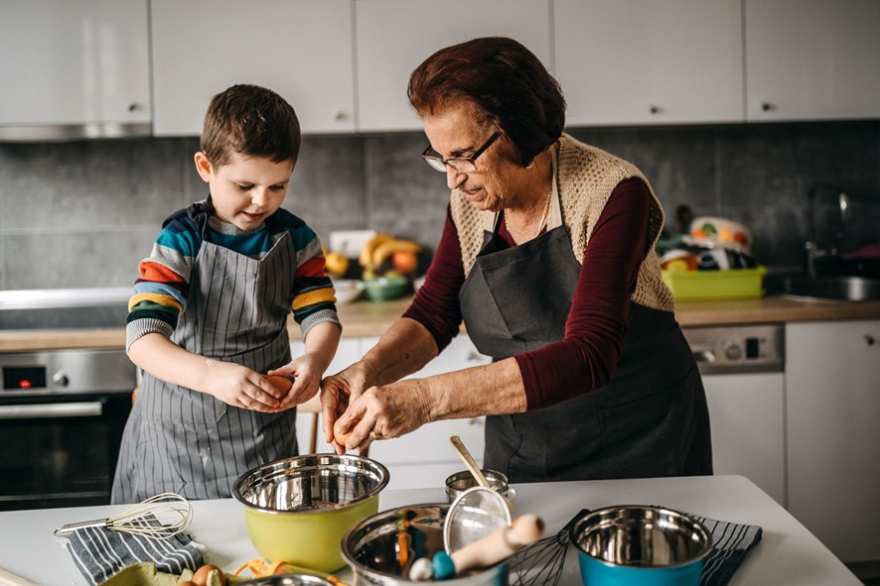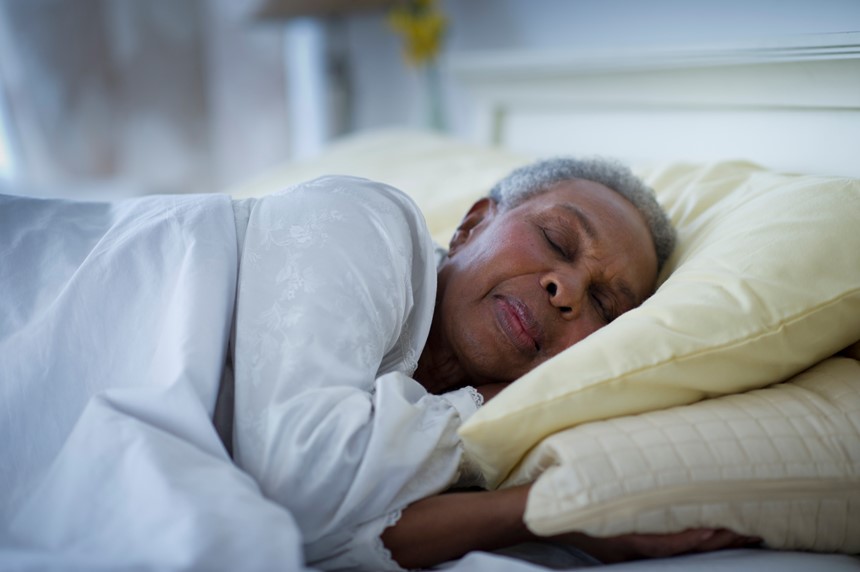6 Super Tips For Better Aging: Being Your Best Self As You Age
6 Super Tips For Better Aging: Being Your Best Self As You Age
Has this ever happened to you?
 You stand up after sitting for a while and there’s an ache in your back or your knees. Or you walk into a room and wonder to yourself “What did I come in here for?” As we get older, our minds and bodies will follow suit. Maybe your memory seems to be not as sharp when trying to remember information.
You stand up after sitting for a while and there’s an ache in your back or your knees. Or you walk into a room and wonder to yourself “What did I come in here for?” As we get older, our minds and bodies will follow suit. Maybe your memory seems to be not as sharp when trying to remember information.
USAFacts.org reported that as of 2020, approximately 16.8 percent of the American population is over the age of 65 years old.
Predictions show that as of 2050, this number will increase to 22 percent by 2050. Though these numbers seem low, comparing them to other population counts that were conducted in 1950, where only 8 percent of Americans were over the age of 65 years old.
With this amount of senior population, it is certain that older generations are feeling more pressure to stay active and alert, not only personally but in their communities.
The following tips will focus on keeping your mind and body feeling their best.
6 Tips To Age Better
Follow these six guidelines to feel your best as you get older.
1) Eat your vegetables!
 As the body ages, it does not require as much meat or starches. In fact, as of 2016, the National Center for Health Statistics showed that almost 40 percent of Americans over the age of 20, are considered obese.
As the body ages, it does not require as much meat or starches. In fact, as of 2016, the National Center for Health Statistics showed that almost 40 percent of Americans over the age of 20, are considered obese.
While we are younger, our bodies are much more active. Perhaps it was easier to work off the calories with more time being physically active. However, when we age, our bodies naturally slow down, often causing more weight gain.
The following are some examples of switching to a better option when planning your meals:
- Mashed potatoes with gravy --- Baked potato with low sodium butter
- Macaroni and cheese --- Whole grain pasta with tomato sauce
- Store-bought muffins --- Whole grain toast with avocado
- Cheeseburger --- Turkey burger with white cheese
2) Keep your mind active
When we physically or mentally do not feel our best, it is harder to focus and commit to hobbies. By distracting our mindset with activities, we are fond of, it then becomes easier and more enjoyable to be active.
The following are ways that can be utilized daily:

- - Play cards (solitaire, cribbage, matching pairs)
- - Read a book (magazines, newspapers)
- - Prepare a meal (bake cookies, make soup)
- - Call a friend (make plans to visit, check-in)
- - Do a household chore (make your bed, clean up the bathroom)
3) Keep Your Body Moving

Research has shown that older adults need about 7,500 steps per day, at least three times per week. By physically engaging in activities, not only does it help with better health, but has shown that it aids with balancing and encourages fewer falls.
The following activities can be utilized in and around the community:
- Park further away from the store
- Walk around the neighborhood
- Take the stairs instead of the elevator
- Ride a bicycle
- Use small weights at home
4) Cut Back on Alcohol
 Studies have shown that adults over the age of 65 years old, should not have more than seven alcoholic drinks per week. While this number may seem quite high, research has shown that over 24 million adults consume up to 74 drinks per week.
Studies have shown that adults over the age of 65 years old, should not have more than seven alcoholic drinks per week. While this number may seem quite high, research has shown that over 24 million adults consume up to 74 drinks per week.
On average, that means that over ten percent of adults in the United States consume almost 11 drinks per day. The liquor commission states that 1.5 oz of hard liquor, 6 oz of wine, or 12 oz of beer has the same amount of alcohol per drink.
Try these simple solutions to cut back:
- Canned or bottled beer -- pour into a small glass instead, this mentally gives you the acceptance of two drinks per beer)
- Wine bottles -- pour into a juice glass (approximately 3 oz), many wine glasses often hold 12-14 oz. of liquid.
- Hard spirits – Instead of 1.5 oz of alcohol, use the smaller end of a jigger to measure your intake. Also, use soda water or diet soda instead of juice or high sugar sodas to top off your drink.
5) Stay Up To Date With Your Doctor ,<
As we age, almost inevitably medication goes right along with it. Blood pressure, diabetes, or even arthritis is often prescribed to older adults. Unfortunately, these medications can have side effects that are not healthy.
They can affect sleep, moods, and energy. If you experience symptoms that do not seem right, call your doctor. Often, changing to a different brand can be beneficial and allow the medication to work properly.
6) Get Enough Rest
 The average aging adult needs between seven to eight hours of rest per night. If you are finding that you are sleeping more often or longer than normal, let your doctor know as this could be a side effect of medications or other health issues.
The average aging adult needs between seven to eight hours of rest per night. If you are finding that you are sleeping more often or longer than normal, let your doctor know as this could be a side effect of medications or other health issues.
Remember to keep your bedroom dark and at cooler temperatures. As Leonardo da Vinci eloquently said, “A well-spent day brings happy sleep.”
Like to find out more about living a full and joyful life in retirement?
You’re invited to join me for a no-obligation Retirement Wellness Discovery Call where together, we will:
- Explore your ultimate “Retirement Vision”
- Find out what your biggest fear is about what retirement will be
- Outline a specific plan for implementing those next steps
- Take your first step toward your “Retirement Vision”
Schedule your complimentary Retirement Wellness Discovery Call here:
